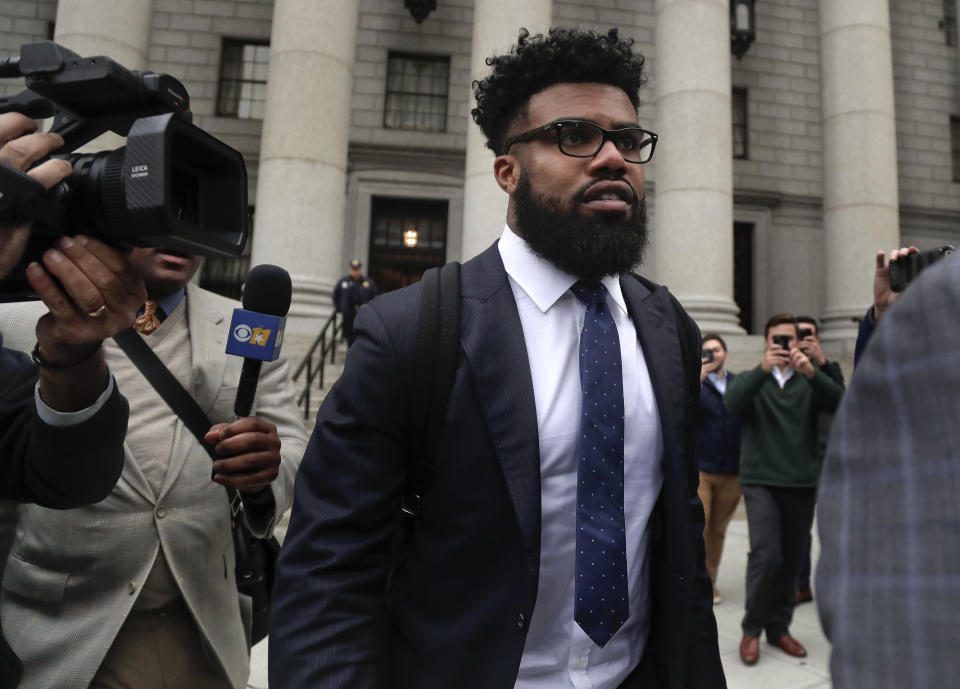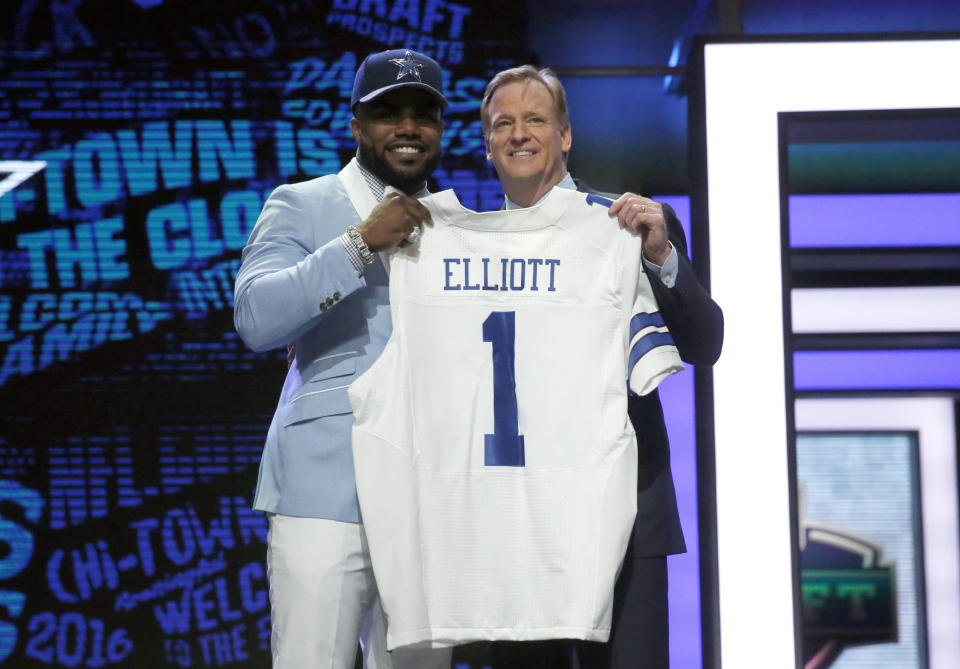Ezekiel Elliott fallout: Roger Goodell keeps on end-zone dancing all over players and they have themselves to blame
One by one, lawsuit by lawsuit, decision by decision, NFL commissioner Roger Goodell is ascending to disciplinary emperor. And in the wake of the Ezekiel Elliott case, his reign over the players is looking more untouchable than ever.
For NFL players and their union, that’s the fallout from Thursday, when a federal appeals court in New York all but guaranteed Elliott will serve his six-game suspension for violating the league’s domestic violence policy. For Goodell and his legal department, the victory comes despite a few judges along the way questioning whether the league’s punitive process is fundamentally fair. It also comes in the face of one of the NFL’s investigators stating her own suspension objections after weighing evidence in the case.
Yet even in the face of those concerns, Goodell has ridden out a litany of legal challenges and prevailed once again, bolstering a nebulous disciplinary process that may never be penetrated.

As it turns out, this NFL emperor not only has clothes, he’s got a legal suit of armor.
The NFLPA gave it to him in the collective-bargaining agreement, and now its players are paying for legal upgrades, too. That’s what is happening with Elliott, whose case may end up damaging the union.
What is left on the docket? The Dallas Cowboys’ star running back will ride out an expedited appeal through the U.S. Court of Appeals in the 2nd Circuit that is set to hear oral arguments on Dec. 1. Unless there is a miraculous revelation, Elliott is likely to lose his appeal. Even with a new panel of judges from the 2nd Circuit, it would be a stunning development to have the court ultimately determine that his appeal arguments were more worthy of a legal win than the simple injunction he was just denied.
And if (or when) Elliott suffers an appeals loss? His legal team could get extremely ambitious and attempt to secure a moonshot appearance before the U.S. Supreme Court, something New England Patriots quarterback Tom Brady didn’t bother to try in deflate-gate. Getting the highest court in the land to hear Elliott’s case would be a monumental accomplishment as it would also be far outside of the norm. The Supreme Court typically takes cases that either have broad and sweeping implications or require a resolution for conflicting decisions from lower branches of federal court. Elliott’s collective-bargaining complaint meets neither standard.
Elliott may try anyway, but when those roads meet a dead end and he is left with no other options, the ripples will have already set in for the NFLPA. And those are this: His federal case and the precedent it helps solidify will be put down right next to Brady and Adrian Peterson – all of whom took the NFL to court over the CBA, and all of whom lost.
Ultimately, that will be three extremely strong pillars holding up Goodell’s power and the NFL’s ability to dictate justice in almost any manner. Each damaging in its own way. Peterson’s case illustrated to the NFL that it has latitude to discipline players as it sees fit; Brady’s case bolstered the league’s reliance on scant (and arguably circumstantial) evidence; and Elliott’s case brought both of those realities together in one legal battle.
The potentially damaging outcome for players might be even more severe due to Elliott’s case. For the first time, it showcased that the NFL can essentially run its own in-house investigation however it wants and still be protected by federal courts – so long as the league goes through its own arbitration process, which has also been painted as rigged. If that doesn’t illustrate the remarkable power that Goodell holds, nothing does.
Authorities decline to press charges against a player? Doesn’t matter. Not necessary in the NFL’s disciplinary realm. The in-house investigator says evidence doesn’t support a suspension? Doesn’t matter. That opinion can be overridden. The player and his legal team believe the investigation was butchered to the point of appearing to be conspiratorial? It turns out the longtime league-appointed arbitrator doesn’t have to weigh those arguments. The arbitrator needs to only see that the NFL went through an investigative process and gathered enough information to make a decision (any decision it wants, basically).

Without embellishment, that’s the level of power Goodell has risen to. Or rather, that’s the level of power Goodell was given. For all the talk about how terrible the last CBA was for players, there is little argument about this one part of it: The NFLPA made a grievous error in surrendering such wide-ranging and largely unchecked authority to Goodell.
The union knows it now. The players know it now. And for years, they’ve been trying to win back some of it in a courtroom, racking up millions in legal bills while simultaneously helping the NFL strengthen its position with legal wins.
All of that has taken this to the place it was always going. To a plateau where the NFL is able to run roughshod over players when it sees the disciplinary outcome it has to win. In domestic violence cases like Peterson and Elliott, it was fundamental to help erase some stains of the Ray Rice fiasco. In the case of Brady, it was instrumental in showing that no player is untouchable, particularly when the NFL is defied to the point of alleged evidence being destroyed or concealed.
In a handful of high-profile wins, the league has shown what it deems to be unacceptable. And more than ever, it has shown the lengths it will go to strike down players who challenge those standards. Some will argue those pursuits have been as rightful as they have been successful. Unquestionably, they’ve been legally fruitful. It takes only one look at the emperor’s suddenly impenetrable armor to recognize that.
The NFLPA gave this gift to Goodell. Then it spent millions in court losses strengthening it. Now the players will have to endure it.
More NFL on Yahoo Sports

